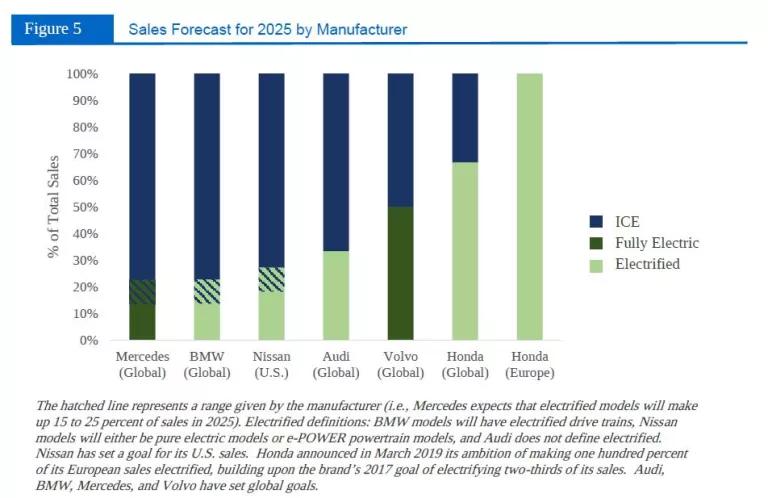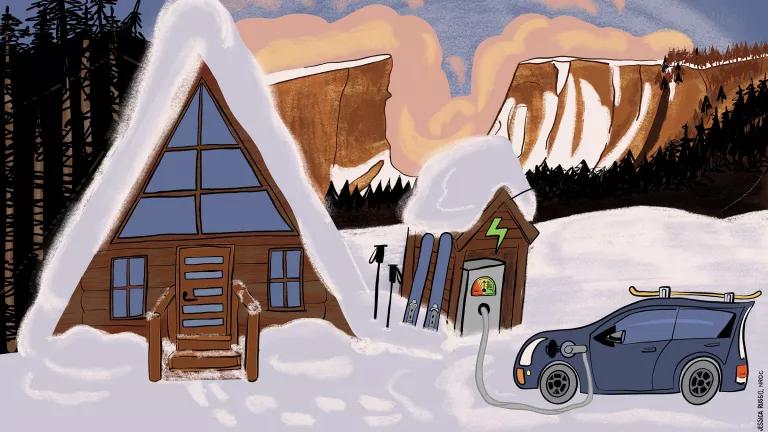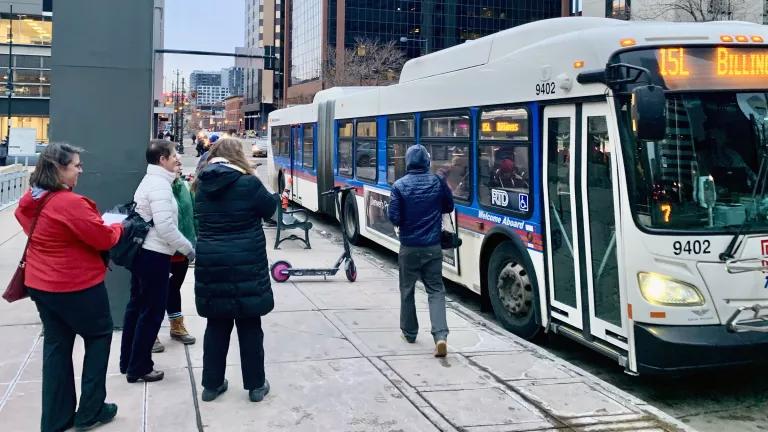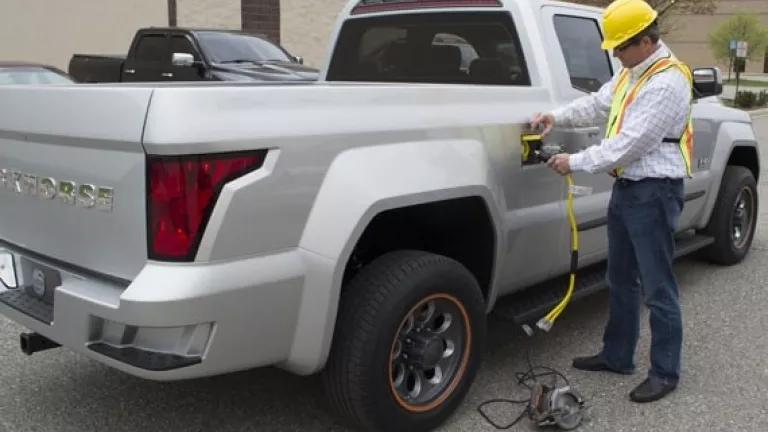
Colorado took a large step forward today to increase the deployment of clean, electric vehicles by initiating a rulemaking to adopt a Zero-Emission Vehicle (ZEV) program. The Air Quality Control Commission (AQCC) voted unanimously to move forward and should the program be adopted this fall, Colorado would join with 10 other states representing over a third of the U.S. market in requiring 7 to 9% of all new passenger vehicle to be partly or fully emissions free by 2025 (for an estimate see the analysis by Shulock Consulting).
Today’s action complements the bold steps taken by Colorado Governor Polis and the legislature, which passed numerous bipartisan bills this session including Senate Bill 77 that will increase charging infrastructure deployment and House Bill 1159 that modifies and extends state EV tax credits while gradually phasing them out in 2025. With the addition of a ZEV program, the state would ensure that auto manufacturers are investing to bring EVs to the state, resulting in greater EV availability at dealerships and EVs on the road.
The ZEV program would also cut carbon pollution by 2.2 million metric tons over 2023 to 2030 while also improving public health through reductions in smog-forming pollutants, based on an analysis released by the Colorado Department of Public Health and Environment (CDPHE). Among another key findings from the analysis: battery electric vehicles will be more cost-effective to own than their internal combustion engine counterparts when including savings to fuel use, maintenance costs, and repairs. The total cost savings of the the rule is estimated to be $1.1 billion cumulatively from 2023-2030 including incremental vehicle costs.
The initiation of the rulemaking was strongly supported by a diverse array of stakeholders including citizens, local government, public health officials, consumer groups, business in the outdoors industry and EV industry, conservation and environmental groups. As I stated in my testimony to the Commission, increasing electric vehicle deployment in the state is necessary to address both air quality and carbon pollution challenges in Colorado. Unfortunately, new vehicle buyers in Denver and Fort Collins face an "EV desert" and would be lucky to find even three out of one hundred vehicles on dealership lots being an electric vehicle. In Colorado Springs, Grand Junction, and Pueblo, buyers would find only one electric vehicle for every hundred vehicles at dealerships within a 25 mile radius.
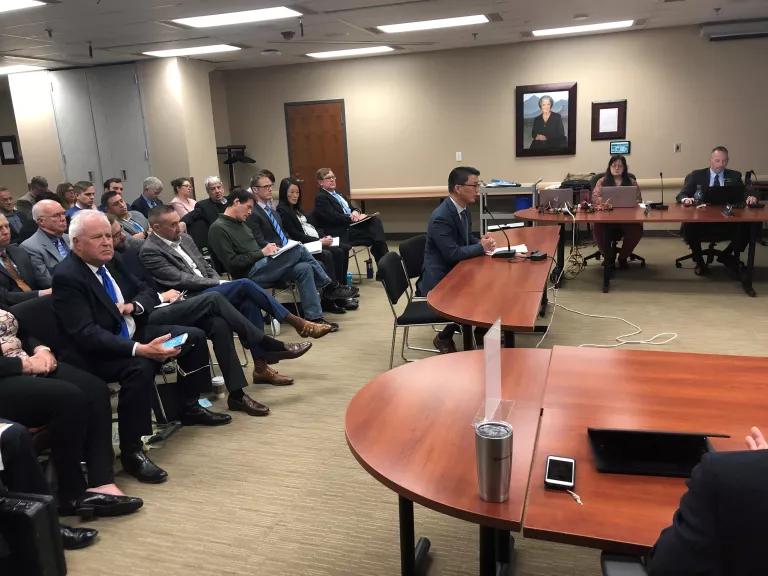
Unfortunately, the auto lobby testified against the ZEV program, in line with their historic opposition against states that have implemented ZEV programs. This comes despite many of the auto companies making commitments on a global level to exceed the very sales level required by the ZEV program (see commitment levels below). While the auto industry group professed their members would voluntarily bring more vehicles into the state, so long as they are not required to do so, their proposal was met skeptically by many stakeholders given that voluntary measures are not enforceable, would not ensure a minimum deployment level would be achieved, and many of the actions have already happening in ZEV states.
With the greenlight given to a ZEV rulemaking, Colorado is laying the foundation to ensure the state's EV market can kick into high gear. Here's to Colorado taking steps out of the EV desert and into the promised land.
Electric Vehicle Market Status: Manufacturer Commitments to Future Electric Mobility in the U.S. and Worldwide (Source: MJ Bradley 2019)
